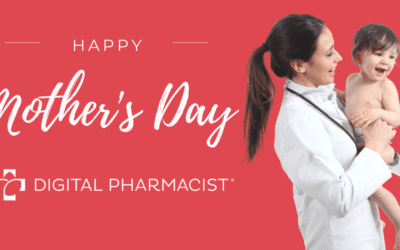As healthcare moves online, pharmacies must face the challenge of protecting patient information while staying competitive in a digital world. Here we will discuss what makes a hipaa-compliant website.
According to HIPAA Journal’s monthly Healthcare Data Breach Report, nearly 40 million healthcare records have been breached in the last 12 months, Most healthcare data breaches are due to hacking and IT incidents, where hackers gain access to protected health information (PHI) through network servers or via email.
Protecting patient information online means your pharmacy’s website must comply with healthcare’s biggest privacy and security standards: HIPAA and CCPA.
What is HIPAA?
Known as one of the most influential decisions in American healthcare, the Health Insurance Portability And Accountability Act (HIPAA) became law in August 1996.
Its goal was to improve health insurance coverage and access to care, simplify administration, and combat common challenges like waste, fraud, and abuse of the healthcare system. The best-known portions of HIPAA, the Privacy and Security Rules, protect physically and electronically-stored PHI. Penalties for violating HIPAA range from fines to prison time in severe cases.
HIPAA generally overrides state laws, though healthcare providers must still uphold any extra local mandates. The California Consumer Privacy Act, for example, has strict requirements for any business that identifies, manages, secures, tracks, produces, and deletes California resident information.
HIPAA Compliance Online
HIPAA’s two major rules apply both directly and indirectly to website compliance:
- Privacy Rule. Sets national standards for protecting personal health information and applies to healthcare providers, plans, and businesses that store health data. It also establishes patients’ rights over their own PHI.
- Security Rule. Specific to electronic PHI or ePHI, this rule sets standards for securing health information through technical, physical, and administrative means. It applies to any organization that gathers, sends, receives, and/or stores ePHI.
If your pharmacy website gathers any identifiable medical data such as conditions, symptoms, treatments, medications, or healthcare service requests, you have to meet HIPAA standards.
Any tools or components you use to gather PHI, such as online patient or contact forms, patient portals, live chats, or testimonials, can be vulnerable to attack or misuse. Servers that store and maintain patient records and communication platforms like messaging systems and email must be securely protected.
Making Your Pharmacy Website Compliant
While there’s no way to guarantee complete privacy or security, here are some steps you can take to make your website as secure as possible:
Encrypt your site. Encryption is the process of transforming information to make it unreadable. Purchase an SSL certificate for your pharmacy site and make sure that all web forms and email servers are also encrypted so you can send and receive information safely.
Limit accessibility. PHI access should be limited to authorized individuals. Consider setting up two-factor authentication or asking patients to confirm personal information like their date of birth to provide that extra layer of security.
Have a plan for storing info. Establish processes to delete, backup, and restore PHI as needed. All client information should be kept on an encrypted server or secure cloud platform to avoid data loss.
Find the right partner. HIPAA holds your business associates, such as hosting companies and website platform providers, to the same privacy and security standards as you. Look for companies that offer HIPAA-compliant products and services and remember to have them sign a compliance contract.
More Compliance Resources
- HIPAA Security Rule Compliance Checklist
- Sample Business Associates Contract
- CCPA Consumer Privacy Rights
Learn more about how Digital Pharmacist’s suite of HIPAA-compliant digital engagement and communication tools can support your pharmacy business by getting in touch with us today.


